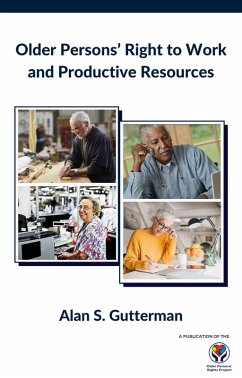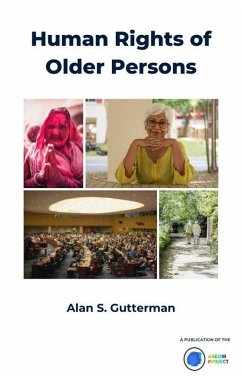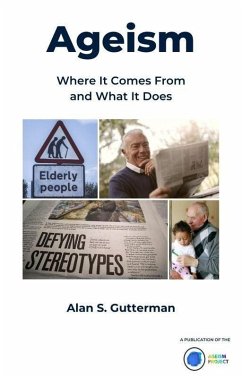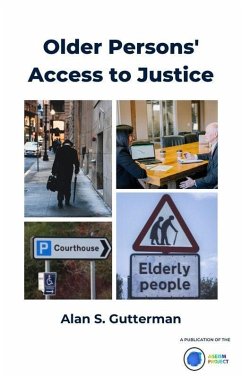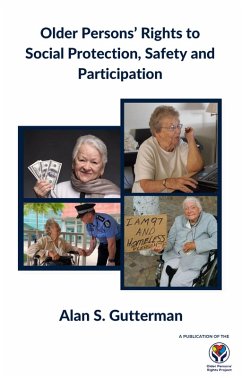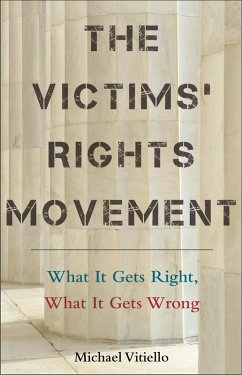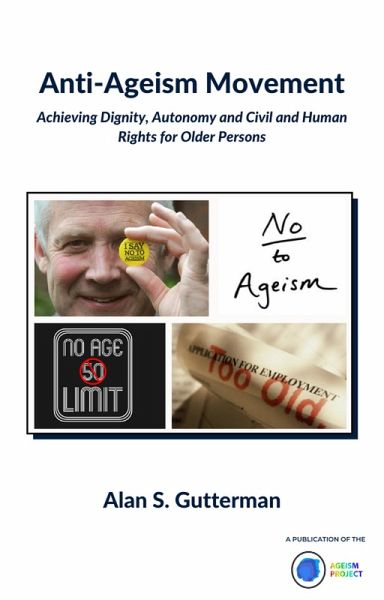
Anti-Ageism Movement (eBook, ePUB)

PAYBACK Punkte
0 °P sammeln!
According to a global report on ageism issued in 2021 by the World Health Organization and the UN Department of Economic and Social Affairs, every second person in the world is believed to hold ageist attitudes, which has led to poorer physical and mental health and reduced quality of life for older persons as a result of social isolation and loneliness, greater financial insecurity among the growing older population and cost societies billions of dollars each year in the form of excess annual costs for expensive health conditions and contributions to GDP lost as a result of discrimination aga...
According to a global report on ageism issued in 2021 by the World Health Organization and the UN Department of Economic and Social Affairs, every second person in the world is believed to hold ageist attitudes, which has led to poorer physical and mental health and reduced quality of life for older persons as a result of social isolation and loneliness, greater financial insecurity among the growing older population and cost societies billions of dollars each year in the form of excess annual costs for expensive health conditions and contributions to GDP lost as a result of discrimination against older persons in the workplace. Ageism also intersects and exacerbates other forms of bias and disadvantage including those related to sex, race and disability leading to a negative impact on people's health and well-being. Combatting ageism requires urgent actions along a number of fronts including policies and laws that address ageism, educational activities that enhance empathy and dispel misconceptions and intergenerational activities that reduce prejudice all help decrease ageism. This book discusses a number of topics and initiatives relating to reducing the negative impacts of ageism in society including the elder rights and active aging movements, the UN Decade of Healthy Ageing; public policy frameworks; efforts to implement an international convention on the human rights of older persons; intergenerational solidarity; promoting positive and dignified images of aging; elder abuse; consciousness raising; the role that businesses can play in fighting ageism; aging-related research; and anti-ageism partnering among governmental agencies, civil society and the private sector.
Dieser Download kann aus rechtlichen Gründen nur mit Rechnungsadresse in A, B, CY, CZ, D, DK, EW, E, FIN, F, GR, H, IRL, I, LT, L, LR, M, NL, PL, P, R, S, SLO, SK ausgeliefert werden.




